Acute myeloid leukemia (AML) is hard to cure compared to other childhood leukemias and lymphomas. Current standard-of-care AML treatment is very toxic; childhood AML survivors often have side effects later in life from their treatment, including heart disease, infertility, and additional cancers. There is a pressing need for new AML treatments that are less toxic and more effective. Dr. Decker’s research is focused on developing novel inhibitors of a protein called N-Ras, one of the most common mutations in pediatric AML. Dr. Decker hopes by disrupting N-Ras function to sensitize AML to existing therapies and improve outcomes for patients. Dr. Decker received his MD and PhD from Columbia University, New York and his BS from Stanford University, Stanford.
Blood Cancers
Current Projects
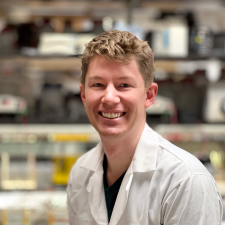
About 70% of pediatric leukemias and 10% of adult leukemias are caused by a genetic disruption in which the mixed lineage leukemia (MLL) 1 gene breaks off and attaches to a different chromosome. This event, known as a chromosomal translocation, gives rise to a distinct subset of leukemias called MLL-rearranged acute myeloid and lymphoblastic leukemias (AML or ALL). Novel treatments for these cancers represent a major unmet medical need. However, the development of therapeutics is hampered by a lack of basic understanding of how the MLL translocations disrupt the function of affected cancer cells. Dr. Farnung will use biophysical and structural biology approaches to visualize how MLL translocations function at the atomic level and influence the important process of gene transcription. His work will elucidate the precise molecular mechanisms that drive acute leukemias and provide a platform for the development of novel therapeutic strategies against these cancers.
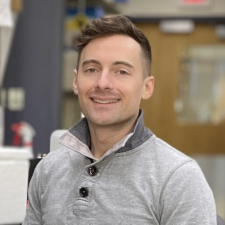
Many cancer diagnostic and treatment strategies use markers on the cell surface to find and kill cancer cells in a sea of healthy tissue. Dr. Flynn’s [Bakewell Foundation-Rachleff Innovator] research aims to expand our knowledge of what molecules are found on the surface of cancer cells. He will focus on acute myeloid leukemia (AML), as there is a major unmet clinical need for new curative treatments. Specifically, he aims to define RNA as a new cell surface molecule that could have unique structures on AML cells. With this knowledge he will develop antibodies to selectively detect cancer cells and enable tumor killing. Because tumors from other parts the body also express RNA on their surface, this strategy is expected to be broadly applicable to other cancer types.
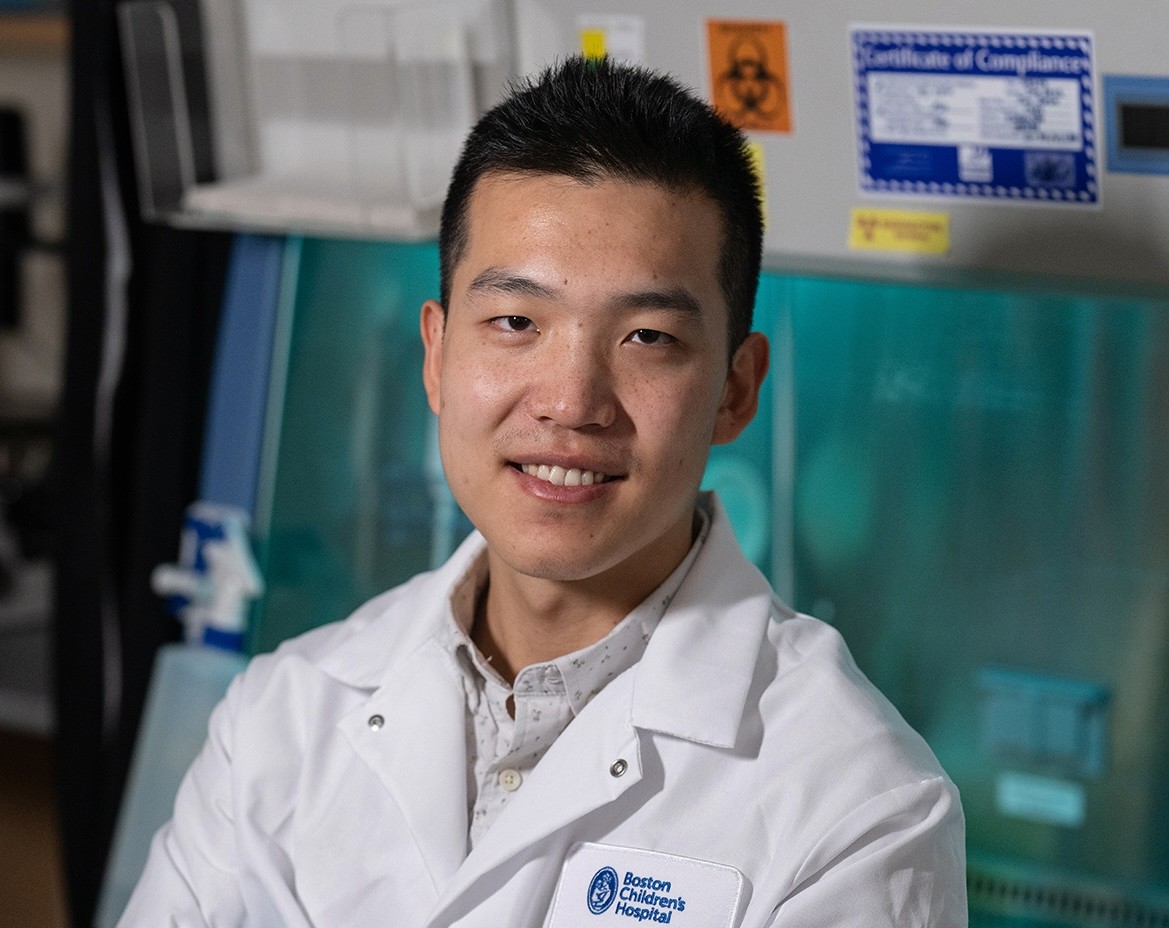
Hematopoietic stem cells, which are found in the bone marrow and give rise to all other blood cells, maintain lifelong blood production and immune function. Due to their remarkable ability to regenerate the entire blood system, medical uses of HSCs have provided cures for many previously incurable diseases, including blood cancers. However, several unanswered questions limit our ability to full harness their therapeutic potential for cancer treatment. What regulates HSC regeneration? Why does their function decline with age? How does HSC behavior vary in healthy individuals? Using cutting-edge single-cell analyses and computational biology, Dr. Gao [HHMI Fellow] aims to identify the molecular and cellular factors involved in HSC regeneration, as well as possible targets for enhancing their regenerative potential. This work could enable significant improvements in stem cell-based therapies for cancer treatment. Dr. Gao received his PhD from Harvard University, Cambridge and his BS from Washington University, St. Louis.
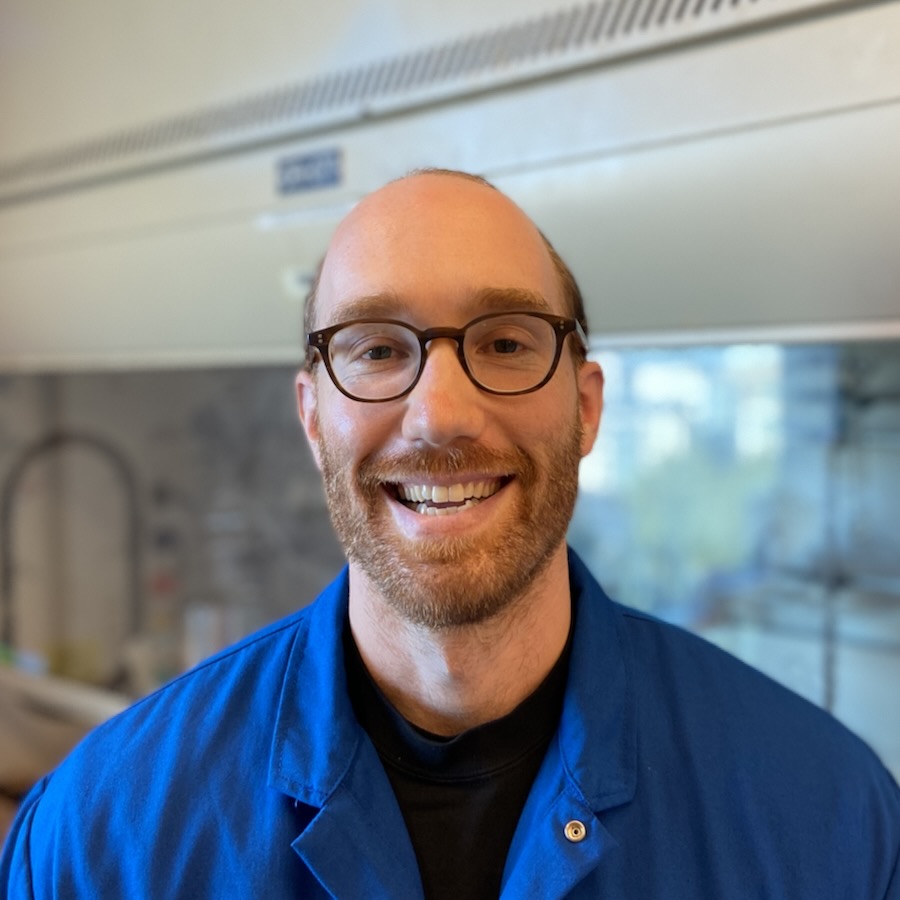
Drug therapies that selectively target proteins that drive the growth of tumor cells are rapidly becoming the standard of care for many cancers. However, tumors are often able to evade inhibition by targeted anti-cancer drugs by activating other proteins, leading to drug resistance. Dr. Gier [HHMI Fellow] is developing a new therapeutic approach that repurposes existing drugs to release highly toxic cargoes, known as payloads, that aggregate in drug-resistant cancer cells and kill them. As a general platform, it is applicable to a wide range of solid and liquid cancers. Dr. Gier received his PhD from University of Pennsylvania, Philadelphia and his BA from Swarthmore College, Swarthmore.
Dr. Gu’s [Sijbrandij Foundation Breakthrough Scientist] lab studies how cells regulate the destruction of proteins without using the typical "ubiquitin" tag, which signals that a protein should be transported to the proteasome for digestion and recycling of amino acids. The lab has discovered a new pathway, the midnolin-proteasome pathway, that helps degrade key proteins involved in cancer, including several linked to blood cancers like multiple myeloma. The lab’s goal is to understand this pathway better and explore how it might be used to develop new treatments, especially for blood cancers, by targeting specific proteins that drive disease.
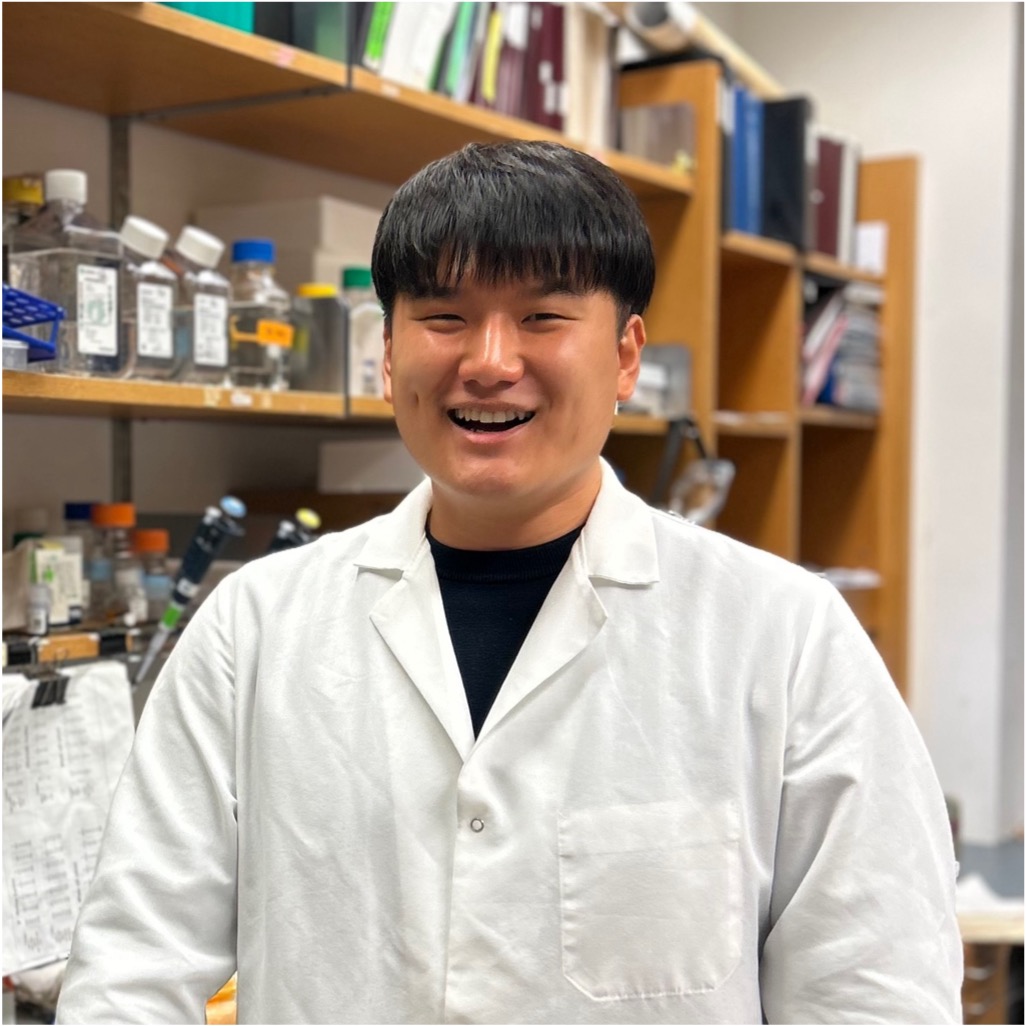
The cellular response to DNA damage is coordinated by an enzyme known as ATM kinase. Mutations in ATM are found in approximately 1% of the population and contribute to an increased risk of both hereditary and sporadic cancers, including breast cancer. Dr. Kim’s [Lallage Feazel Wall Fellow] research investigates how ATM suppresses the production of double-stranded RNAs (dsRNAs) in response to DNA damage. These dsRNAs play a critical role in tumor progression. Dr. Kim aims to identify the key molecular players involved in ATM-mediated suppression of dsRNAs and elucidate how the loss of ATM function triggers inflammatory responses through dsRNA sensing pathways. By uncovering these mechanisms, Dr. Kim aims to deepen our understanding of how ATM mutations drive cancer development and uncover novel therapeutic strategies for ATM-associated cancers. Dr. Kim received his PhD and BS from the Ulsan National Institute of Science and Technology, Ulsan.
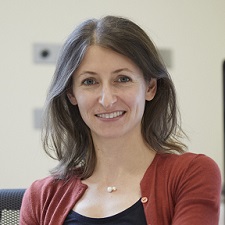
Cancer cells rely on efficient uptake, conversion, and exchange of nutrients and vitamins to support their rapid growth and survival. The molecular transport channels that allow passage of nutrients between the different cellular compartments are critical for the survival of cancer cells and are thus promising as potential drug targets. However, drug discovery efforts are hampered by a lack of basic understanding of these channels' identities, functions, and regulation inside cancer cells. Dr. Kory's research aims to identify transporters central to cancer cell nutrient supply and detoxification pathways and determine their role in the emergence, survival, and aggressiveness of cancer. Her research is relevant to all cancers, but particularly pediatric, blood, and breast cancers.
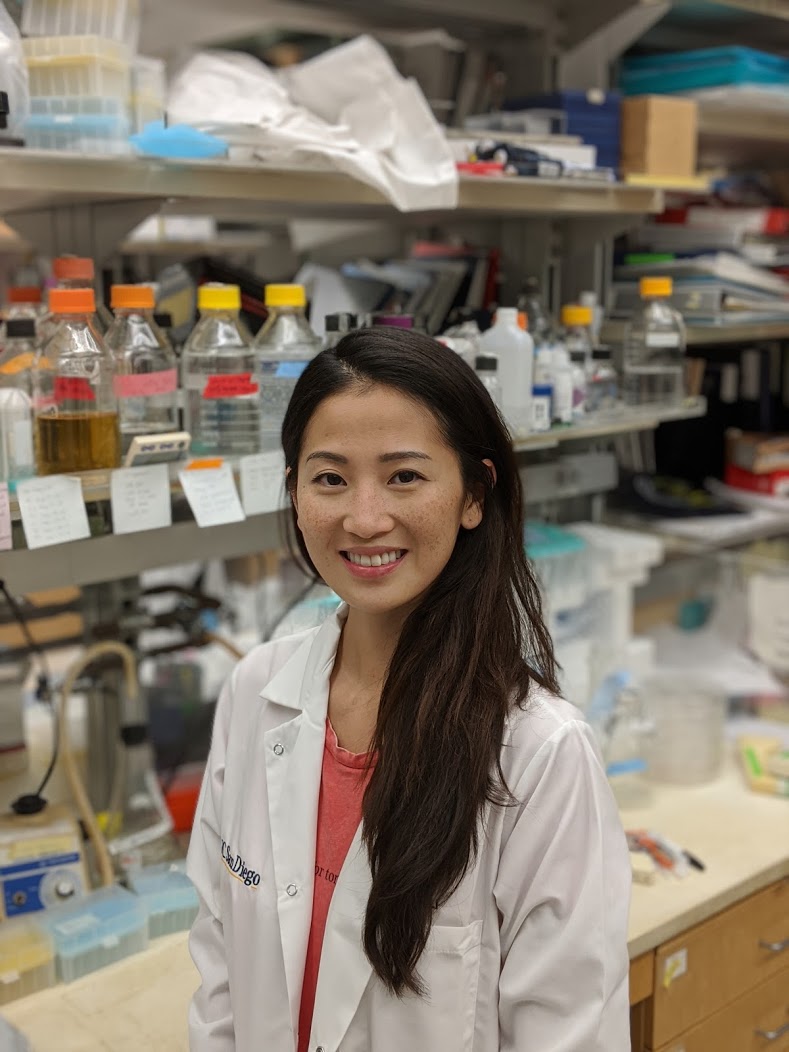
Dr. Li’s research aims to uncover a missing link between repeated DNA sequences, genomic instability, and viruses. While abnormal expansion of “repeats” has been found at unstable genomic regions, known as fragile sites, that are implicated in cancer growth, the mechanisms and consequences of this genomic instability remain poorly understood. Dr. Li recently discovered a cluster of Epstein Barr Virus (EBV)-like repeat sequences in the genome that breaks when bound by abnormally high levels of EBV antigens. These findings illustrate how a chromosome can be broken in long-term EBV infection, which can threaten genome stability and trigger cancer development. Dr. Li aims to leverage this discovery to advance our understanding of how broken repeats threaten genome integrity for clinical screening of individuals susceptible to EBV-associated diseases, and for the prevention and treatment of disease in these individuals. This research could also lead to the discovery of other virus-like repeats and the potential biological function of these virus-like repeats in our genome.
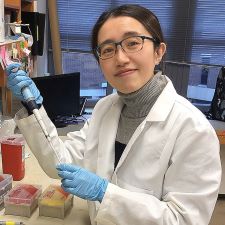
Sex differences are markedly evident in many types of cancer, and one of the major contributors to sex-biased differences lies in the sex chromosomes. In contrast to the traditional view that Y chromosome-encoded proteins only function in male reproductive organs, recent evidence suggests that select Y chromosome-encoded proteins are also expressed in male non-reproductive tissues. Furthermore, dysregulation of the Y chromosome-encoded proteins has been implicated in cancers in non-reproductive organs. Upon closer examination, this subgroup of Y chromosome proteins each has corresponding proteins on the X chromosome. Dr. Liu will study the function of the Y chromosome-encoded proteins and whether and how protein sequence differences from their X chromosome-encoded counterparts lead to functional distinctions in cancer development.







